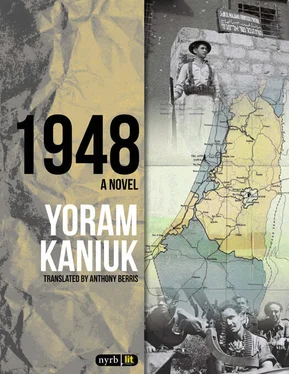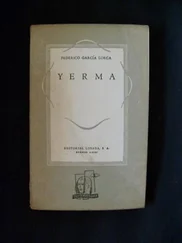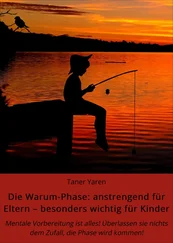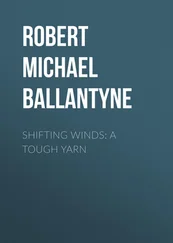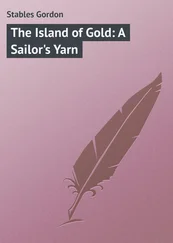I didn’t understand why they hadn’t taken the village. They were many. Awake. They’d probably been drinking black coffee all night. We had little ammunition left. Then after a while we heard a call on the radio: We’re coming.
While we’re firing, a group of twenty-three guys under the command of Nahum Arieli arrives. They come running right into the firing. Nahum’s deputy orders us to withdraw and shouts, Privates retreat. Commanders cover them! The rocks shouted in pain. Carob pods were shed. Figs dropped. I’ll remember Shimon Alfassi who yelled, Privates retreat. Commanders cover them, all my life. Officers, the best soldiers in the brigade, of whom it was said of each and every one that one day he’d be the president of a state or a general, came to defend the seven or eight privates who were still alive, the shitheads who were retreating on orders.
The officers commanded by Nahum Arieli stood like a human avenue on both sides of the path, between charred buildings and amid an inferno of firing, and we passed between them as if on our way to the wedding canopy. Slowly, one after the other they were hit and fell and those left standing continued to cover us and at the same time went on firing at the attackers but also to die. With one eye I can see them shielding me as they fall like dominoes and I want to fire but I’m out of ammunition.
The black horde reached the upper slopes of the mountain by the sheikh’s house, and before they finished taking the mountain and killing the officers and us, they started brutalizing the bodies. Not all of us were fully dead and they began slashing the bleeding wounded with knives, and we’re running down the hill, not stopping, trying to fire at the slaughterers but unable to, and we reach the sheikh’s tomb down below, by the road to Jerusalem, and come under fire from the direction of Qaluniyya on the other side of the road, and suddenly we see that they’ve all halted. There’s a heavy silence. They stand over the bodies they’ve abused and start wailing. They’re standing over the line of bodies and they’re yelling and swaying like drunken dancers, and instead of taking the mountain that was already under their control, they suddenly became grief-stricken, we didn’t know what had happened to them, we saw our defenders who had been stabbed with daggers, bleeding and dying, and in their great victory the Arabs took flight between the bodies.
We’d already come down from the empty mountain, we’ve no idea what to do and our eyes are teary from the firing and we’re crawling, and then we reach Kiryat Anavim, and one of the officers there looks at the papers that one of us had taken from the pocket of Valentino with the kaffiyeh and the golden akal and says, Well I’ll be damned, it’s Abdel Khader al-Husseini. That elegant man had been the legendary commander of the Arab forces in the region since the 1930s and was the mufti’s cousin. That’s why, in great anguish at the man’s death, instead of taking the mountain that was already in their hands, they went back to Jerusalem to accompany their commander to his burial in a royal funeral attended by thousands.
Perhaps that moment, when we were all about to be killed and lose the most important hill strongpoint on the road to Jerusalem, in the war that Benny Marshak called the war for the six meters of the road leading to the city, perhaps it was that moment that changed the face of the war. We realized that you don’t leave a conquered village of strategic importance, and some guys from our battalion climbed the mountain quickly and blew up a few buildings. And now only Qaluniyya village was left, that most beautiful of the Land of Israel’s villages and the most pitiless, the village that controlled the seven bends of the road, where we had lost fighters and many of the convoys’ escorts. It was then decided, without too much thought, that a platoon should be left to guard the Castel. This was the second village, after our hilarious victory at Caesarea, which was taken in the war and became ours.
Some time later I was sitting by a well in some village. Maybe Beit Zurif. I don’t remember. I drank cool water from a clay jara and ate wood sorrel and the sight of the slaughtered bodies remained inside me. I thought, What had they come for? Twenty-three of the best had come to rescue how many? Six, seven, maybe eight. Who would ever understand what had really taken place in that Valley of the Shadow of Death, and I thought — I remember how I suddenly thought, perhaps for the first or second time in that entire war — why twenty-three people had come to defend six, why twenty-three who were the very best, far better than me in establishing states, better than all my shithead friends, and who were we? Did we have a future? Those dead had a future. They could have been violinists. Artists. Scientists. Military commanders. Who of us would be somebody in the future that had been taken from them?
Twenty-three people went up that hill, each and every one a legend of a man, who had already brought us honor, who had already proved himself, led by Nahum Arieli, a striking man, who sang beautifully, and he came to protect me — the noble man came to rescue the piddling clown that I was, and I’m thinking what will happen tomorrow, the day after, they’ll talk about it as a lever, Look, they’ll say, see how the Palmach protected its own. Today I know that it was in that battle that the “follow me” legend was born, the “follow me” ethos of the Israeli army, because of which the best of the best would be killed, and is it worthwhile? Is it wise? Did someone smarter and more intelligent and older than me have to stand over me in that avenue of death, to fall, to die in front of me, to be slaughtered just so that I, who was my mother’s darling, would stay alive? What kind of a life can you live after that whole story?
Then I was able to think that without Nahum Arieli and his comrades a state would not come about, that with them the force that was supposed to fight after us had been destroyed. And now, as I write this and I am old, ailing, I think that the “follow me” ethos is wonderful and noble, but misguided. A myth should never have been created from the “follow me” on the Castel. The best are always worth more. They could have contributed what I would be unable to contribute. Nahum Arieli would have become Chief of the General Staff or Minister of Defense, and I remained with a torn-off limb, sitting in my home and writing about what I never was and who I didn’t become, and about my life in contrast with the lives of Nahum Arieli and Shimon Alfassi, the hero among men who uttered those terrible words, Privates retreat. Commanders cover them, and died. And they all died, to the last man.
I don’t know. I stayed alive. I was shot. They missed. They didn’t miss, but my life is nothing but the vanity of a weak man. What is a war without tanks, without aircraft, just a few small ramshackle Auster planes, or “Primuses” as we called them, in the sky, without weapons, without food, without water, without artillery, without a change of clothes, without anything, Jerusalem under siege, whipped, shells falling constantly, people being killed standing in line for water and kerosene. How do you explain to the young soldiers of today, who will die in other wars, with equipment and training, how do you explain the Palmach spirit to them? What the human spirit is. What a vision is. What it is to dream. What do you dream about? I don’t know. Perhaps it was all in vain.
After I got back home half dead and the country was filled with Holocaust survivors, who our nice guys referred to as “soaps” and who were a thousand times stronger than us, I realized that it had been worthwhile. But even then, how do you explain to a boy on the Pan York , a boy who at age twelve in Auschwitz had searched for diamonds in his dead parents’ rectums so he could sell them to the SS, how do you explain what happened on the Castel to him? The Castel was a nice children’s story compared with the little that this boy told me and then kept silent for sixty years.
Читать дальше
